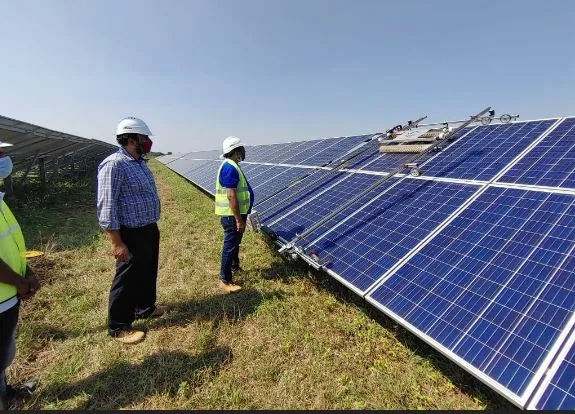Solar Cleansing Start-up Solavio Labs Obtains Financing from Canadian Province
- Solavio Labs, an Indian tidy tech startup introducing in the photovoltaic panel cleaning innovation space has introduced the completion of funding from Canadian Province-- New Brunswick for Rs 40,60,000 taking their overall fund elevated to Rs 2 crores.

This notes Solavio Labs as the only Indian startup in the clean technology room to obtain assistance from three Federal government bodies- India, Dubai as well as Canada in the last one year. With this fresh round of funding, the company also introduced its expansion right into the Middle East as well as North American Market. And, to sustain the expanding international demand for PV innovation, Solavio Labs also plans to scale its production base in India with the production of 12,000 systems by end of the FY 21-22. The global solar cleaning market is anticipated to cross $ billion by 2026.
A Solavio Bot At The Office
Commenting on the event, Suraj Mohan, Co-Founder-- Solavio Labs stated-" PV technology has actually been the core of our increased growth. Having safeguarded orders from leading developers in India and also Dubai, Solavio has actually seen incredible growth (125x) in the last one year. The current funding by Canadian District-- New Brunswick through New Brunswick Innovation Fund is encouraging as well as we intend to expand our production facilities in the nation to fulfill the worldwide demand. The 4th generation innovation we have will certainly assist fulfill efficiency of solar energy causing boosted green power consumption and also through this adding worth to culture in a purposeful way. We will continue to innovate technology as well as play our part in reinforcing India's setting in the worldwide map."
Started by two designers, Solavio Labs is a Coimbatore based green technology startup which remains to introduce and also develop AI based remedies to allow independent photovoltaic panel cleaning. An essential obstacle faced by the market is the settlement of dirt as well as various other impurities, which minimizes the efficiency of the solar photovoltaic (PV) panels upto 40% and also the matching ROI for Solar Plant owners. The existing cleansing centers are greatly dependent on manual labour and also other cleansing methods such as sprinkler systems, high pressure washers which come with their limitations in terms of prices, use resources like water etc
Suraj Mohan & Prashanth Goel, founders, Solavio Labs
Solavio Labs' claims that its trademarked self-governing dry-cleaning remedy for solar PV panels dealt with these key locations of concern and also is compatible with almost any kind of solar panel, placing framework, kind (roof-top or ground install) or weather condition as well as is nearly 30% lighter than the majority of crawlers on the market. Along with this, the company declares that the dry-cleaning innovation additionally saves over 200,000 Litres of water per Megawatt per year. With a tried and tested track record of addressing the important efficiency difficulties in the field with the help of fourth industrial innovation, the business lately became part of a long-term MoU with the Dubai Electrical Power and Water Authority (DEWA). As part of this MoU, the business has efficiently appointed its initial collection of autonomous solar panel cleaning robots to pilot at the 1.8 MW Solar PV Carport located within the DEWA Head office school. Better, Solavio Labs has likewise lined-up orders from tier-1 designers spread around the world for 100 MW of Solar PV plants.
Formerly, Indian launch like Skilancer as well as Nocco Robotics have actually also received financing for their solutions targeting the solar cleaning market, dominated by Israel's Ecoppia, among other companies.
Also read

